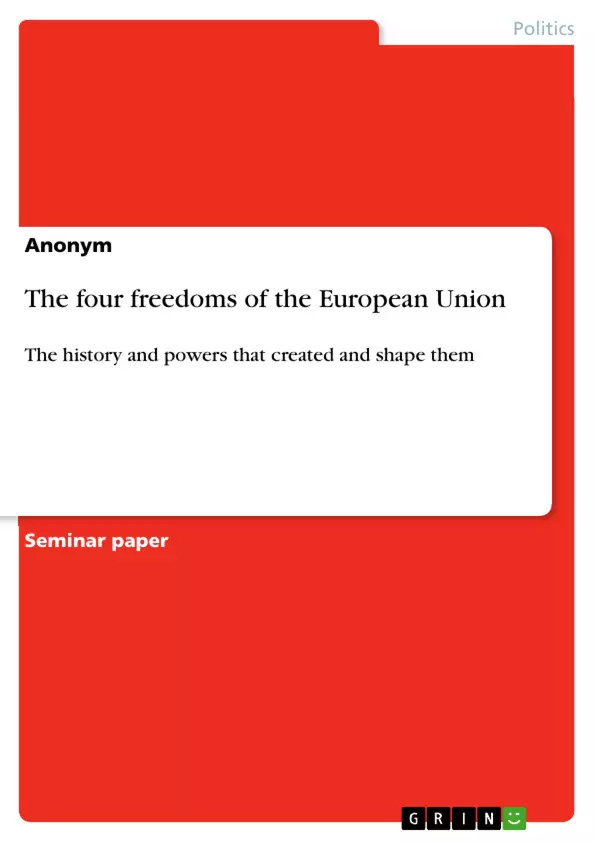This paper gives answers to the role of the four fundamental freedoms in the EU (free movement of persons, goods, services and capital), their shaping factors and importance throughout history until today.
In the first step, the fundamental freedoms are characterized and distinguished. Afterwards, a detailed look at their history is taken and their most important milestones discussed. Furthermore, their development is traced. Subsequently, two exemplary recent events, the British exit out of the European Union and the European refugee crisis, are examined. On their basis, the importance of the four fundamental freedoms today, is discussed. Special attention is paid on the free movement of persons, as this appears to be the one which has arisen the most displease. In connection to this, possible implications are weighted and the actual discontent of the free movement of persons questioned.
Table of contents
Abstract
List of figures
List of abbreviations
1 Research Question
2 The four fundamental freedoms
3 Historic development
4 Recent events shaping the four fundamental freedoms
5 Conclusion
6 List of references
Frequently Asked Questions
What are the four fundamental freedoms of the EU?
The four freedoms are the free movement of goods, persons, services, and capital within the European Union.
How have the four freedoms developed historically?
The paper traces their origins from the early treaties to the establishment of the Single Market, highlighting key milestones and shaping factors.
How did Brexit affect the four freedoms?
Brexit is examined as a recent event that challenged the principle of the free movement of persons, leading to a re-evaluation of its importance today.
What role did the European refugee crisis play in this context?
The crisis is used to discuss the tensions and "displease" surrounding the free movement of persons and border controls within the EU.
Why is the free movement of persons particularly controversial?
It often raises concerns about national sovereignty, social security systems, and migration, making it a focal point of political debate.
- Arbeit zitieren
- Anonym (Autor:in), 2018, The four freedoms of the European Union, München, GRIN Verlag, https://www.grin.com/document/934292



